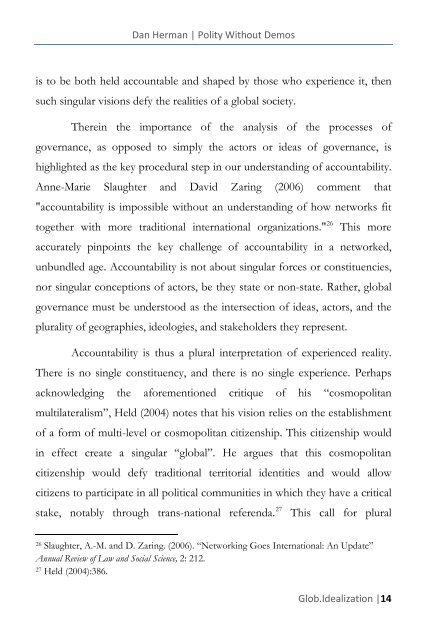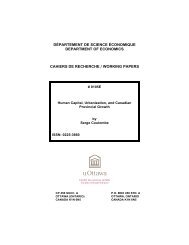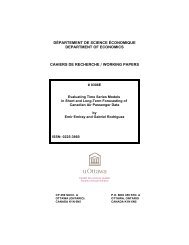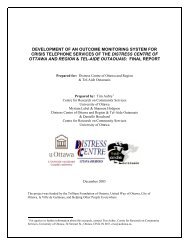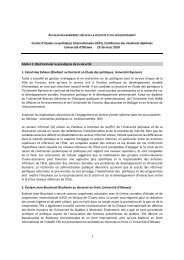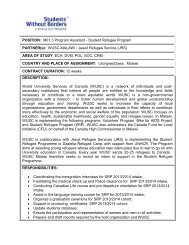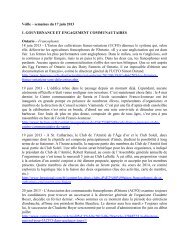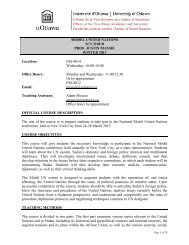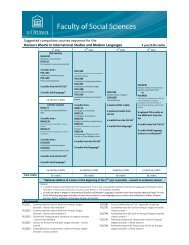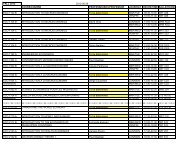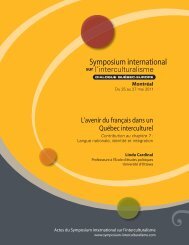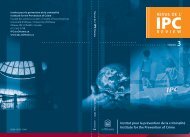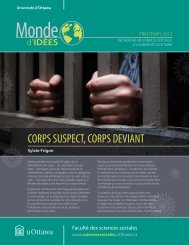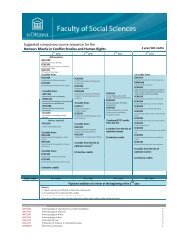GLOB.IDEALIZATION MOND.IDÉALISATION - Faculty of Social ...
GLOB.IDEALIZATION MOND.IDÉALISATION - Faculty of Social ...
GLOB.IDEALIZATION MOND.IDÉALISATION - Faculty of Social ...
Create successful ePaper yourself
Turn your PDF publications into a flip-book with our unique Google optimized e-Paper software.
Dan Herman | Polity Without Demos<br />
is to be both held accountable and shaped by those who experience it, then<br />
such singular visions defy the realities <strong>of</strong> a global society.<br />
Therein the importance <strong>of</strong> the analysis <strong>of</strong> the processes <strong>of</strong><br />
governance, as opposed to simply the actors or ideas <strong>of</strong> governance, is<br />
highlighted as the key procedural step in our understanding <strong>of</strong> accountability.<br />
Anne-Marie Slaughter and David Zaring (2006) comment that<br />
"accountability is impossible without an understanding <strong>of</strong> how networks fit<br />
together with more traditional international organizations." 26<br />
This more<br />
accurately pinpoints the key challenge <strong>of</strong> accountability in a networked,<br />
unbundled age. Accountability is not about singular forces or constituencies,<br />
nor singular conceptions <strong>of</strong> actors, be they state or non-state. Rather, global<br />
governance must be understood as the intersection <strong>of</strong> ideas, actors, and the<br />
plurality <strong>of</strong> geographies, ideologies, and stakeholders they represent.<br />
Accountability is thus a plural interpretation <strong>of</strong> experienced reality.<br />
There is no single constituency, and there is no single experience. Perhaps<br />
acknowledging the aforementioned critique <strong>of</strong> his “cosmopolitan<br />
multilateralism”, Held (2004) notes that his vision relies on the establishment<br />
<strong>of</strong> a form <strong>of</strong> multi-level or cosmopolitan citizenship. This citizenship would<br />
in effect create a singular “global”. He argues that this cosmopolitan<br />
citizenship would defy traditional territorial identities and would allow<br />
citizens to participate in all political communities in which they have a critical<br />
27<br />
stake, notably through trans-national referenda. This call for plural<br />
26 Slaughter, A.-M. and D. Zaring. (2006). “Networking Goes International: An Update”<br />
Annual Review <strong>of</strong> Law and <strong>Social</strong> Science, 2: 212.<br />
27 Held (2004):386.<br />
Glob.Idealization |14


